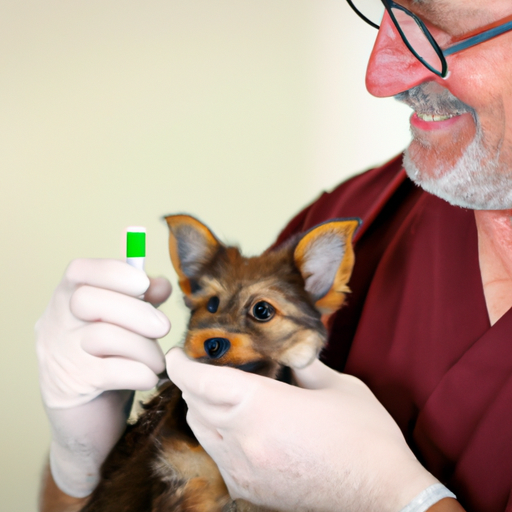As a dedicated caregiver for your canine companion, it’s crucial for you to understand the importance and frequency of vaccinations, particularly the rabies shot. This deadly disease could pose a threat not only to your pet, but to you and your family as well. So let’s delve deeper into the topic and find out how often rabies shots for dogs are needed.
Understanding Rabies
Rabies, a fatal virus, affects the nervous system of mammals. It usually spreads through a bite from an infected animal. Your beloved pet can be one such target. Symptoms are grave, often leading to severe neurological problems and ultimately, death.
You may be startled to know that according to the World Health Organization, more than 15 million people worldwide receive post-bite vaccination. This prevents hundreds of thousands of rabies deaths annually. But wouldn’t it be better to prevent our pets from getting infected in the first place?
The Rabies Vaccination Schedule for Dogs
First and foremost, your veterinarian is your best guide in determining your pet’s vaccination schedule. However, here’s a general timeline:
- First Rabies Shot: Administered at 12-16 weeks of age.
- Booster Shots: Given a year after the first shot and then every 3 years.
It’s critical to note that these schedules can vary based on local regulations and your pet’s health condition.
| Age | Vaccination |
|---|---|
| 12-16 weeks | First Rabies Shot |
| 1 year later | Booster Shot |
| Every 3 years | Booster Shot |
Factors Influencing The Frequency of Rabies Vaccination
The frequency of the rabies shots can be influenced by a few factors:
-
Local laws: The schedule can vary depending upon local laws and regulations. Some areas may require annual shots while others mandate it every three years. Always check with your local animal control or public health department.
-
Health and age of the dog: Puppies receive immunity from their mother’s milk, but this protection fades as they grow. They should receive their first vaccination between 12-16 weeks. Senior dogs or dogs with chronic health conditions should have a health check before vaccination.
-
Lifestyle of the dog: Dogs that spend a lot of time outdoors or in areas with a high incidence of rabies may need more frequent vaccinations.
The Importance of Regular Rabies Vaccinations
Regular rabies vaccinations are essential for several reasons:
-
Protects your dog: The primary reason is to protect your dog from a deadly disease. It’s a simple preventative measure that could save your pet’s life.
-
Protects you and your family: Rabies is a zoonotic disease, which means it can be transmitted from animals to humans. By vaccinating your dog, you’re also protecting yourself and your family.
-
It’s the law: In many places, regular rabies vaccinations for dogs are not just recommended, they’re legally required.
Frequently Asked Questions
Q: Can Rabies Vaccination Be Given Early?
A: It’s best to stick to the schedule recommended by your vet. Early vaccination may not provide the desired immunity.
Q: Does My Indoor Dog Need a Rabies Shot?
A: Yes, even indoor dogs need to be vaccinated. They can still get exposed to rabies, for instance, if a rabid bat enters your home.
Q: What If My Dog Misses A Booster Shot?
A: If your dog misses a booster, consult your vet immediately. They will guide you on the next steps.
Q: Are There Side Effects To Rabies Vaccination?
A: While side effects are rare, some dogs may experience slight fever, lethargy, or loss of appetite post-vaccination. In case of severe reactions, contact your vet right away.
So dear caregivers, remember, your dog’s health is in your hands. Regular rabies vaccinations are a small price to pay for the safety and well-being of your beloved pet and your family. Be informed, be proactive, and keep those tails wagging.



